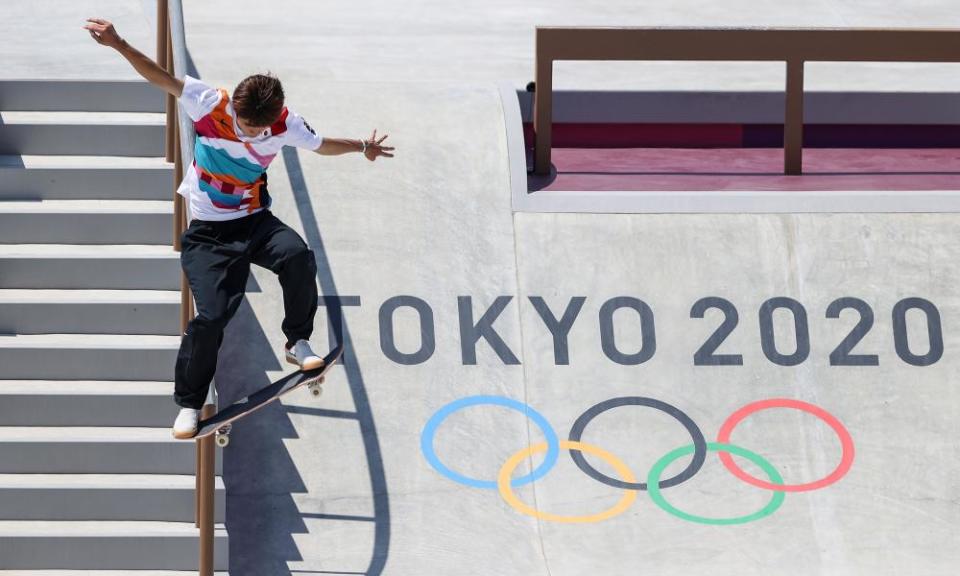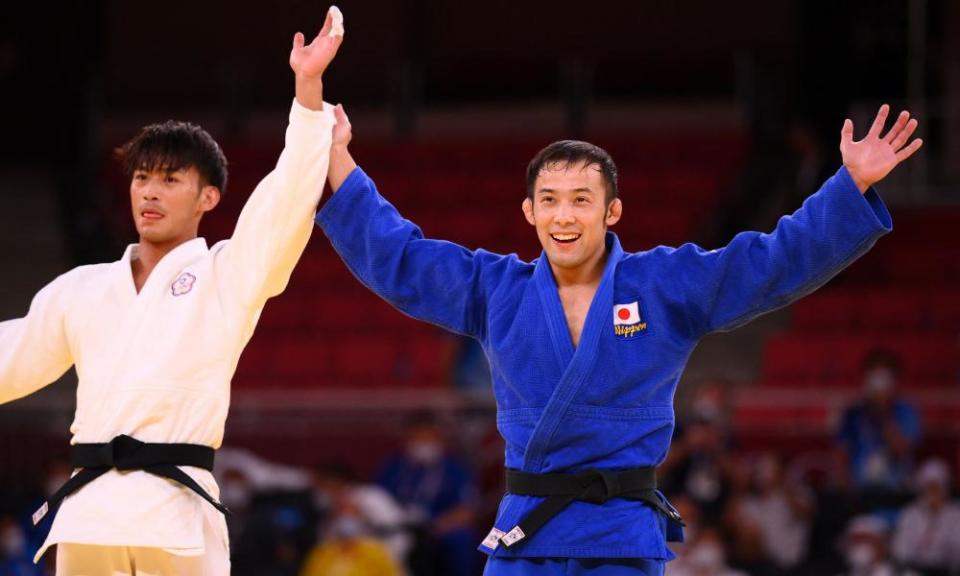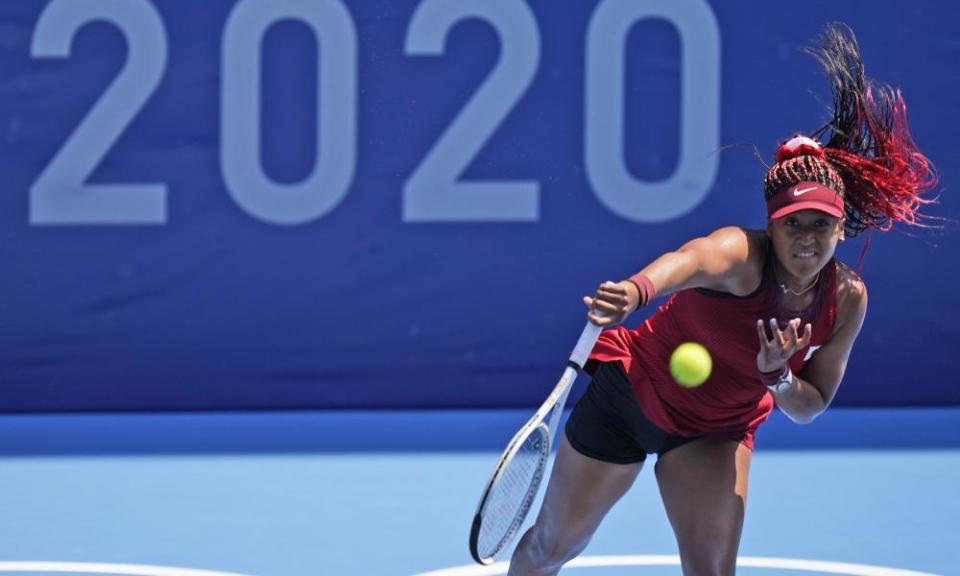Japan’s golden day at Olympics softens mood of Covid misgivings

Two days of Olympic sport in Tokyo have created a moral dilemma for millions of people in the host country who had hoped the day would never come when Japan’s athletes would win their first gold medals of the summer.
Having invested so much in opposing the Games, would it then be possible, in good conscience, to take pleasure in the feats of the athletes once they became an inevitability?
The answer in Japan, after a weekend in which it brought its gold medal tally to five, is a qualified yes.
Newspapers more accustomed to framing Tokyo 2020 against the gloomy backdrop of the coronavirus pandemic are running headlines that are an unashamed celebration of sporting achievement.
On Saturday, news bulletins led with breathless accounts of Japan’s first gold medal in the Games, which went to the judoka Naohisa Takato in the men’s 60kg.
TV reporters interviewed Takato’s delighted, tearful parents – watching with friends and supporters in his hometown – while the victor received a congratulatory call from the prime minister, Yoshihide Suga, who must have delighted in relinquishing his role, however briefly, as the bearer of bad tidings.

The Asahi Shimbun, the only national newspaper in Japan to have called for the Games to be cancelled, was not alone in ruing the luck of Kohei Uchimura, routinely referred to as the greatest male gymnast of all time, whose Olympic career came to an end when he fell from the horizontal bar.
There was more to celebrate on Sunday, however, when Yuto Horigome won the first skateboarding gold in Olympic history in the men’s street event, with Yui Ohashi taking gold in the women’s 400-metre individual swimming medley.
Hours later came arguably the most heartwarming story of the Games so far, when Hifumi Abe and his younger sister, Uta, became sibling gold medallists in judo, on the same day and in the country of the sport’s birth.
Moments of celebration came with stories of personal strength. As Horigome flashed his gold medal, TV presenters reminded viewers that as a 15-year-old he had moved to the US to become a professional skateboarder, with the intention of returning to promote the sport in the city of his birth. Mission accomplished, and then some.
There were uplifting messages to be found even in the depths of disappointment. Japan’s women failed to qualify for the final of the women’s 4x100m freestyle swimming relay, but that will matter less to one member of the team, Rikako Ikee, whose appearance in Tokyo comes only two and a half years after she was diagnosed with leukaemia.
In a repeat of the men’s cycling road race the previous day, thousands of people masked up and lined the streets of suburban Tokyo on Sunday to send competitors in the women’s road race on their way to Fuji International Speedway, where thousands more awaited their arrival.
An Olympics that has invited widespread loathing is now creating anticipation: of Naomi Osaka’s quest for tennis gold; of the return of international rugby two years after the World Cup; and of a potential gold medal showdown in softball between the hosts and the US.
While NBC reported its lowest US television audience for an opening ceremony for 33 years, the International Olympic Committee said 69.4 million people in Japan alone had watched at least some of the preliminary competition events last Wednesday and Thursday.

None of that proves a fearful Japanese public has been pacified by their compatriots’ success at the Nippon Budokan and elsewhere, however.
One the same day as the Abe siblings guaranteed themselves front-page coverage, the governor of Tokyo, Yuriko Koike, reminded residents to support their heroes at home and avoid going out.
The capital, now under its fourth Covid-19 state of emergency, reported 1,763 new infections, the highest number for a Sunday since the start of the pandemic, while its seven-day moving average jumped more than 36% from a week earlier.
Furthermore, the claim by Thomas Bach, the head of the IOC, that there was “zero” risk of transmission among residents of the Olympic village has come under greater scrutiny. As of Sunday, organisers had reported 132 cases since the beginning of the month, including 13 athletes, 40 officials and 66 contractors.
If public sentiment can soften towards the Olympics, it can just as easily return to its hostile pre-Games setting if more evidence emerges that they are contributing in any significant way to a rise in infections in Tokyo.
After Japan’s emperor, Naruhito, chose to “commemorate” rather than “celebrate” the Games’ official start in his address at the national stadium on Friday, the people of Japan have been similarly circumspect.
With the Olympics imminent, an opinion poll by the Kyodo news agency found that 87% of respondents were worried the Games would cause a surge in coronavirus cases. At the same time, 71% conceded they were looking forward to watching them.
The English-language Japan Times neatly summed up the mood, declaring in an editorial that it was time to put the politics of Tokyo 2020 to one side. “For now, we can only cheer and applaud the athletes,” it said.
There was agreement in the pages of the vernacular press. “What’s essential here is to separate the thrills and emotions we feel for athletes from the plethora of problems plaguing the event, and not to let those issues be forgotten once the Games are over,” the Mainichi Shimbun said.

 Yahoo Finance
Yahoo Finance 